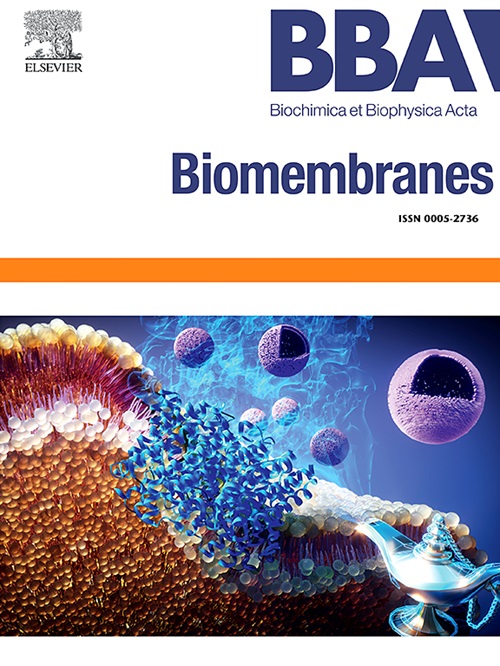评估蜘蛛毒液肽Latarcin Ltc2a对三阴性乳腺癌的抗癌潜力
IF 2.5
3区 生物学
Q3 BIOCHEMISTRY & MOLECULAR BIOLOGY
引用次数: 0
摘要
癌症仍然是人类健康面临的最严峻挑战之一,需要不断探索创新的治疗策略。在众多潜在的候选者中,来自毒液的肽已成为具有多种药理特性的生物活性分子的有力来源。在这项研究中,我们将蜘蛛毒液衍生的抗菌肽Ltc2a改造成一种选择性抗癌剂,将微生物防御与癌症治疗联系起来。我们的研究结果表明,与正常细胞相比,Ltc2a在2 μM的肽浓度下对癌细胞表现出选择性的细胞毒性。Ltc2a在1 h内对乳腺癌细胞产生快速的细胞毒性,并伴有膜破坏,如碘化丙啶(PI)阳性染色和场发射扫描电镜(FESEM)下可见的癌细胞膜损伤。使用斑马鱼模型进行的体内研究表明,在4 μM的测试肽浓度下,其具有良好的吸收性和无急性毒性,存活率为80%。有趣的是,Ltc2a的截断变体保留了其α螺旋结构,并且在MDA-MB-231细胞中表现出比HEK293T细胞更优先的摄取。这些发现突出了Ltc2a作为毒性最小的选择性抗癌肽的治疗潜力,为进一步的临床前开发铺平了道路。本文章由计算机程序翻译,如有差异,请以英文原文为准。

Assessing the anticancer potential of spider venom peptide Latarcin Ltc2a against triple negative breast cancer
Cancer remains one of the most formidable challenges to human health, necessitating constant exploration of innovative therapeutic strategies. Among the myriad potential candidates, peptides from venom have emerged as potent sources of bioactive molecules possessing diverse pharmacological properties. In this study, we repurposed a spider venom-derived antimicrobial peptide, Ltc2a, into a selective anticancer agent, bridging microbial defense with cancer therapeutics. Our findings reveal that Ltc2a exhibits selective cytotoxicity towards cancer cells compared to normal cells at just 2 μM of the peptide concentration. Ltc2a induced rapid cytotoxicity within 1 h in breast cancer cells and it was accompanied by membrane disruption as shown by propidium iodide (PI) positive staining and visible damage to cancer cell membranes under field emission scanning electron microscopy (FESEM). In vivo studies using a zebrafish model indicated favorable uptake and a lack of acute toxicity, depicting 80 % survival rate up to 4 μM of tested peptide concentration. Interestingly, the truncated variants of Ltc2a retained their alpha helical structure and demonstrated preferential uptake in MDA-MB-231 cells over HEK293T cells. These findings highlight the therapeutic potential of Ltc2a as selective anticancer peptide with minimal toxicity, paving the way for further preclinical development.
求助全文
通过发布文献求助,成功后即可免费获取论文全文。
去求助
来源期刊

Biochimica et biophysica acta. Biomembranes
生物-生化与分子生物学
CiteScore
8.20
自引率
5.90%
发文量
175
审稿时长
2.3 months
期刊介绍:
BBA Biomembranes has its main focus on membrane structure, function and biomolecular organization, membrane proteins, receptors, channels and anchors, fluidity and composition, model membranes and liposomes, membrane surface studies and ligand interactions, transport studies, and membrane dynamics.
 求助内容:
求助内容: 应助结果提醒方式:
应助结果提醒方式:


